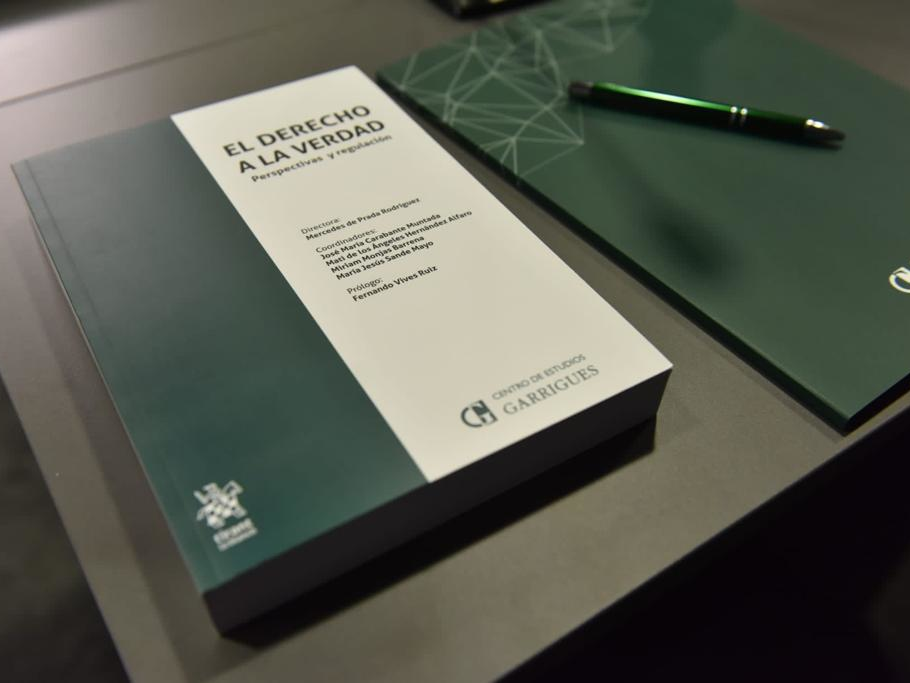
Centro de Estudio Garrigues master’s degrees top ranking compiled by legal website todojuristas.com
February 9 2022


Alcobendas, 3 March 2022 — Yesterday, Centro de Estudios Garrigues hosted the book launch of ‘El derecho a la verdad: perspectivas y regulación’ (in English, ‘The Right to the Truth: Outlook and Regulation’). The event was attended by Carlos Lesmes Serrano, president of the Spanish Supreme Court and president of the General Council of the Judiciary. Other influential figures from society and the legal sector in attendance included Félix Plaza Romero, president of Centro de Estudios Garrigues; Laura Barrios, deputy director of Tirant lo Blanch; Mercedes de Prada Rodríguez, academic director of Centro de Estudios Garrigues; and Fernando Vives Ruiz, president of Garrigues.
The book includes contributions from more than twenty professionals from various areas of law — magistrates, registrars, prosecutors, lawyers, and scholars — and, in the words of Carlos Lesmes Serrano, ‘is vitally important in the complex times in which we live, because it deals with such a substantial issue as the right to the truth, a subject that is crucial to maintaining the quality of our democracies.’
The president of the Spanish Supreme Court and president of the General Council of the Judiciary brought to the table a reflection on one of the most interesting chapters of the book, dealing with fake news and disinformation on the internet. ‘It is essential that we provide citizens with resources, through education and specific training, to equip them with the tools to verify and critically analyse the content of the information they receive through the internet,’ he said.
In his speech, he also stressed the importance of transparency in institutions. ‘The people, from whom all the powers of the state derive, have the right to access the information available to their representatives in order to participate in the exercise of that power. The European Court of Human Rights recognises transparency as a fundamental right, essential to encourage citizen participation and informed public debate,’ he concluded.
A unique work
The new book, an authoritative collective work with the participation of more than twenty authors, ‘seeks to offer a starting point on both the general and specific aspects of a future right to the truth, with the aim of sparking a fruitful debate on the problems it raises,’ commented Fernando Vives Ruiz, the author of the foreword.
The academic director of the Centro de Estudios Garrigues, Mercedes de Prada Rodríguez, thanked all the authors for their contribution. ‘This work has taken special care to address the right to truth from a cross-disciplinary perspective, knowing that the issues raised in relation to law and truth are varied and pertinent,’ she noted.
‘El derecho a la verdad: perspectivas y regulación’ addresses a worrying social phenomenon of indifference towards the truth, in a context marked by the impact of new technologies that have exacerbated the issue. It is a profound reflection on the current legal framework that examines the possible creation of a right to the truth in the face of phenomena that appear indifferent to it, such as fake news and its dissemination on social networks. All of this with the aim of guaranteeing a minimum level of protection to defend citizens and society from the dissemination of falsehoods, without infringing on freedom of expression or other fundamental rights.